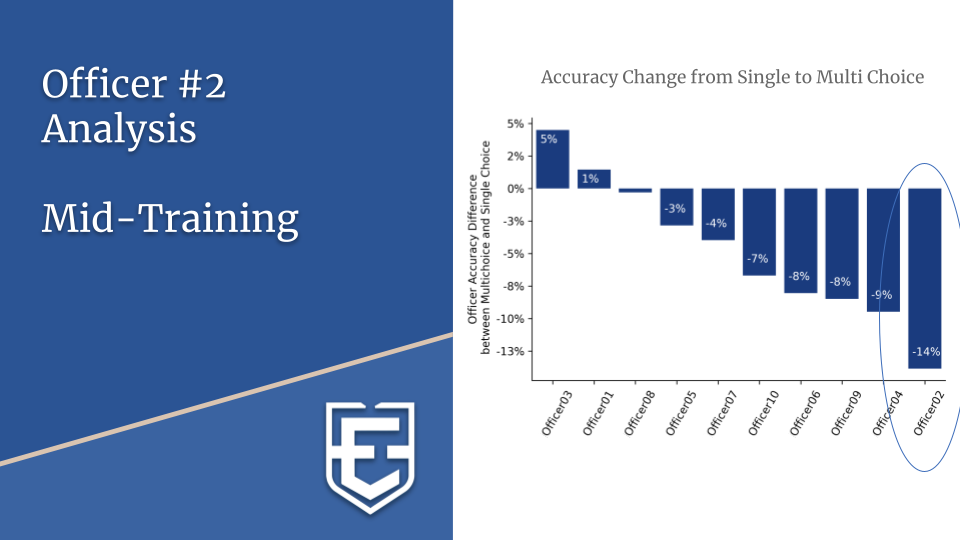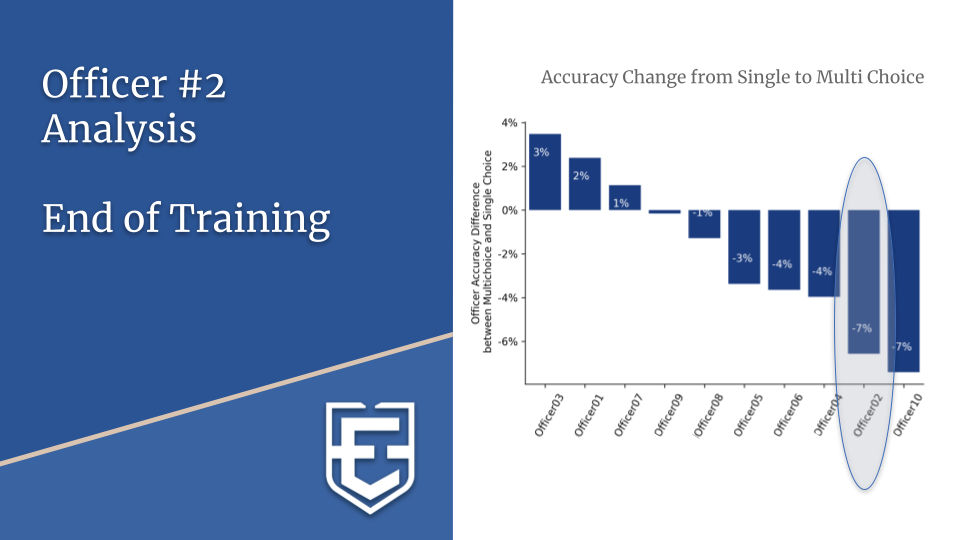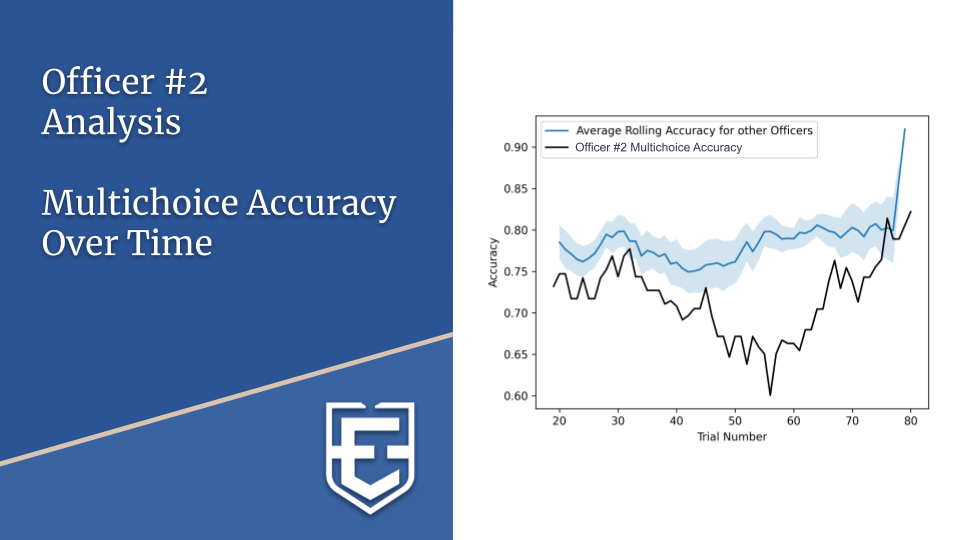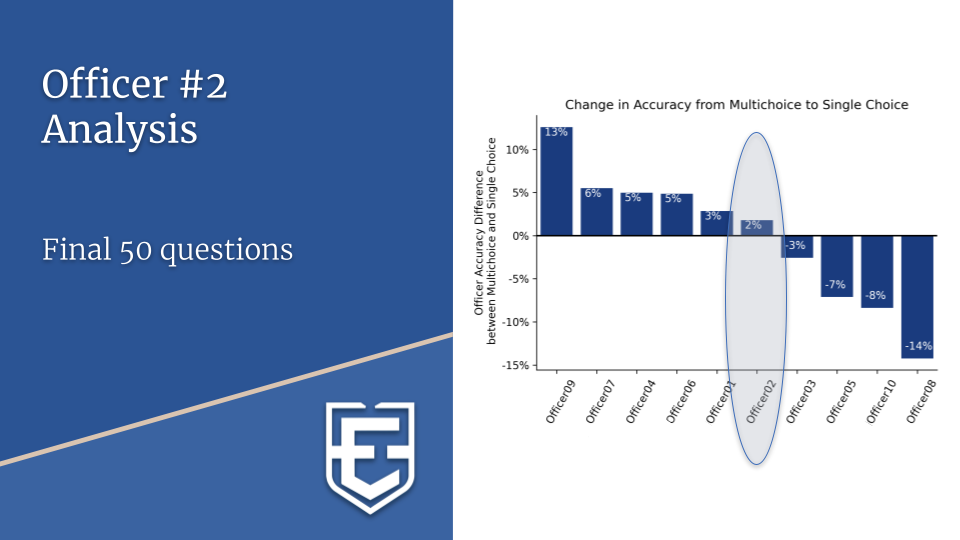Enhancing Police Cadet Training with e-TRAIN (Part 2)
How a Police Academy Integrated eTRAIN into their Curriculum
A Case Study in Law Enforcement Training
March 18, 2024

Police Cadet Training with eTRAIN
In Part 1, we discussed the importance of police cadet training and modernizing training programs with technology. We also explored eTRAIN, a platform for law enforcement agencies that uses immersive and interactive training scenarios to improve situational awareness and decision-making skills. Here in Part 2, we see how eTRAIN is integrated into a Police Training Academy’s curriculum and how it can improve individual cadet training.
The eTRAIN system has a dashboard allowing instructors to monitor cadets’ progress and view metrics. Instructors can see the overall scores of their cadets and analyze individual cadet responses to specific questions and scenarios. This feature helps instructors track cadet progress and provide additional training based on specific scenarios. We will examine how this Training Academy used this feature for one of their cadets.
e-TRAIN for Cadet Training Skill Monitoring
During live training exercises, the training academy raised concerns about Officer #2’s ability to make decisions with multiple correct options. Police officers routinely find themselves in scenarios with limited information and multiple possible solutions. Training officers for these types of scenarios is vitally important. In addition, understanding the decision mechanics officers rely upon helps make the eTRAIN platform effective. eTRAIN Dashboard was checked to see if this problem was present in their eTRAIN training. eTRAIN staff was informed to investigate the issue and identify the root cause. After analyzing the data collected from the platform, it was found that Officer #2 needed to improve their ability to answer multiple-choice questions correctly. Their accuracy dropped by 14% when answering multiple-choice questions compared to their peers.

Officer #2 Analysis
Officer #2 performed well in answering single-choice questions, with a response time of under 1.5 seconds and an accuracy rate of over 80%. However, eTRAIN concluded that Officer #2’s challenge was not with their understanding of the material, but rather with their ability to process and analyze multiple pieces of information at once.
The eTRAIN program trains cadets more efficiently and consistently, improving their performance. Officer #2 underwent additional training on multichoice questions as part of the curriculum. Consistent feedback from the platform helped improve Officer #2’s accuracy, resulting in a marked performance improvement. By the end of the training, Officer #2 improved the accuracy difference between single and multichoice questions to -7 %.

The graph below shows Officer #2’s progress. In the beginning, their multichoice accuracy was lower than that of their peers. As training progressed, their accuracy dropped significantly below their peers, hitting its lowest point at trial 55. The instructors identified the issue and notified the eTRAIN staff. The cadet made significant progress after that and, by the end of training, answered multiple-choice questions with the same accuracy as single-choice questions.

We saw a -7 % difference in the cadets’ performance when answering single- and multi-choice questions. However, we wanted to assess their final results on the last 50 questions. Towards the end, the cadet’s accuracy in answering multichoice questions improved and was close to their peers, as shown in the graph. Their accuracy increased from -14% to +2% in answering multichoice questions when we analyzed the final 50 questions. This improvement is one of the significant benefits of the eTRAIN Platform. The training academy noticed a marked improvement in Officer #2’s performance during live training exercises. This demonstrates how eTRAIN can effectively transfer its training to operational contexts.

The Importance of Integrating Scenario-Based Training Early in Police Training
eTRAIN is a cloud-based software platform that provides interactive training scenarios for law enforcement agencies. In addition, the eTRAIN dashboard provides instructors with an overview of their cadets’ progress. This enables them to monitor their performance and provide additional training based on specific scenarios. In Part 1 of this blog post, we discussed how instructors can train a cohort of cadets efficiently and customize it to the department’s needs. The platform’s consistent feedback helps cadets improve their skills and abilities, as evidenced by Officer #2’s improved performance. eTRAIN’s ability to transfer training to operational contexts is valuable for law enforcement agencies that want to update their training programs with technology.
